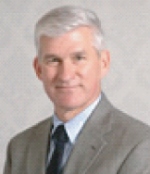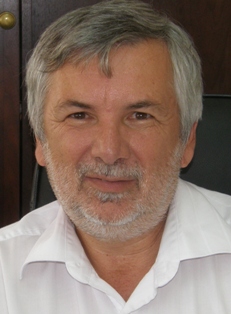Archive for December 21st, 2009
LIME looks east to offer more customer service
(CNS): Customers living in the eastern districts looking for LIME residential services can now sign up at the firm’s store in Countryside Shopping Village in Savannah, Newlands. The new retail store offers all of the services and products that LIME has available in its George Town branches, such as Internet, mobile and BlackBerry services, as well as home services, payments and service changes. It also sells a full range of LIME mobile phones, including the latest ‘green’ Motorola phone made from recycled materials.
BlackBerry, Nokia, Samsung, Motorola and other manufacturers are on show, as well asthe latest mobile accessories, such as batteries, Bluetooth headsets for hands-free mobile use, car chargers and stylish mobile phone cases and skins are on hand for customers. Also present at the new store are netbook computers, sold with LIME Internet service.
“This store is the perfect addition to our other sites in Grand Cayman at Galleria Plaza and Anderson Square. We know how busy life can get and the Countryside location will provide added convenience and access to LIME’s services and products to customers living on the Eastern side of Grand Cayman,” Daniel Tathum, Head of Department – Retail Sales, said about the new store.
Just in time for a last minute Christmas gift, the store opening hours are: 10:00 am to 7:00pm, Monday to Saturday. LIME at Countryside will open late till 8:00 pm on Christmas Eve, Thursday 24 December.

Government works on challenge of data protection
 (CNS): According to information released by officials on Monday, for the last two months a government working group has been examining and developing the framework for a data protection law. The aim, government said, is to develop legislation to regulate how personal information is collected and processed by all businesses and organisations. However, the jurisdiction’s controversial Confidential Relationships (Preservation) Law, will need to be amended or repealed before the data protection legislation can be enforced.
(CNS): According to information released by officials on Monday, for the last two months a government working group has been examining and developing the framework for a data protection law. The aim, government said, is to develop legislation to regulate how personal information is collected and processed by all businesses and organisations. However, the jurisdiction’s controversial Confidential Relationships (Preservation) Law, will need to be amended or repealed before the data protection legislation can be enforced.
The Chairman David Archbold, from the Information and Communications Technology Authority (ICTA), said the group is presently reviewing laws from other jurisdictions that it feels may be relevant to the local situation and is developing a policy recommendations.
“The law will impose requirements on ‘data controllers’ to handle personal information fairly and lawfully,” said Archbold. “Personal data may only be collected, used, stored and accessed for specified purposes, and must always be adequately safeguarded. Data controllers will be accountable for complying with these principles and liable for breaches, such as unauthorised use or disclosure.”
In early 2010 the group will submit recommendations to the Cabinet Secretary and Attorney General on how the legislation can be introduced and how best to monitor and enforce compliance. It will also prepare a paper on key issues for public consultation.
Government said that a critical consideration is the need for the proposed law to be able to work alongside existing laws with privacy and access provisions, in a manner that supplements those existing protections.
The current Confidential Relationships (Preservation) Law criminalizes the unauthorized disclosure of confidential information and it has caused controversy in recent times as it is considered to be a secrecy law and one which has been at the heart of what are seen as the secrecy issues surrounding the islands’ financial services industry.
Although the CRPL legislates gateways through which information may be obtained by law enforcement and government’s who have signed treaties with the CIG, anyone else is prohibited from asking for information from any private entity in Cayman.
According to some local experts the Cayman Islands government will have to, at the very least change if not entirely repeal the CPRL before introducing any kind of data protection law.
With the introduction of the FOI Law in January 2009 which allows individuals to access their own personal data held by public authorities (but not private entities) the law also requires government departments and agencies to maintain accurate and up to date information. The intention now is to bring those provisions under the Data Protection Law and have them extend beyond government to any entity holding personal information.
Members of the working group include representatives from the Attorney General’s Chambers; the
Others are drawn from civil society and professional organisations such as the Chamber of Commerce, Law Society, Banker’s Association and Caymanian Bar Association.

Momentous win for girl’s U17 football team
 (CNS): Minister of Sport Mark Scotland has congratulated the U17 Women’s Football Team on their momentous win last weekend (Saturday, 12 December). “By becoming the first-ever national football team to make it to the second round of the World Cup qualifiers, they have firmly played their way into the history books,” he said. The Caymanian team will now go on to their first final of the CONCACAF (the Confederation of North, Central American and Caribbean Association Football) Under-17 Women’s Championship, scheduled for San Jose, Costa Rica from 9 to 20 March.
(CNS): Minister of Sport Mark Scotland has congratulated the U17 Women’s Football Team on their momentous win last weekend (Saturday, 12 December). “By becoming the first-ever national football team to make it to the second round of the World Cup qualifiers, they have firmly played their way into the history books,” he said. The Caymanian team will now go on to their first final of the CONCACAF (the Confederation of North, Central American and Caribbean Association Football) Under-17 Women’s Championship, scheduled for San Jose, Costa Rica from 9 to 20 March.
Minister Scotland said, “It was a nail-biting match, but their hard work, dedication and perseverance certainly paid off. I applaud Coach Bobby McLaren and the Cayman Islands Football Association (CIFA) Women’s Technical Director Thiago Cunha for standing by their team through thick and thin, and for teaching the players to compete with enthusiasm and win with grace. “I also commend the CIFA for always demonstrating an unwavering belief in our young football players.
 “Above all, the weekend’s win proves once again that Cayman’s athletes have the talent and resolve to make their mark on the sports arena, both locally and further afield. I wish the team the best of luck in all their future games as they are heading to the CONCACAF Under 17 Women’s Championships next March in Costa Rica. Let us all support them as they prepare with this event, especially as they will be up against the defending champions, the United States, hosts Costa Rica, and Haiti.”
“Above all, the weekend’s win proves once again that Cayman’s athletes have the talent and resolve to make their mark on the sports arena, both locally and further afield. I wish the team the best of luck in all their future games as they are heading to the CONCACAF Under 17 Women’s Championships next March in Costa Rica. Let us all support them as they prepare with this event, especially as they will be up against the defending champions, the United States, hosts Costa Rica, and Haiti.”
Coach Bobby McLaren from Jamaica and technical director of the National women’s programme, Brazilian Thiago Cunha, worked together in bringing the Under-17s to a level proficiency that has brought them this far, the Jamaica Observer reports. Not only have they stressed that girls do well on the field of play, but have ensured that they concentrated on their academics.
"I feel blessed to have been given the opportunity by CIFA (Cayman Islands Football Association) to coach these players. They truly are an amazing team," McLaren told the Observer.

International expert to feature at funds conference
 (CNS): The new highlight at The International Funds Conference 2K10 to be held on the 14th January at the Ritz-Carlton, will be the inaugral William Walker Memorial Lecture to be delivered by Dr. Andrew Bacevich, Professor of International Relations and History at Boston University.The late William Walker was a pioneer and one of the founding fathers of Cayman’s offshore financial services industry as well as founder of conference hosts and local law firm, Stuarts. The conference, now in its third year, will focus on the challenges surrounding global transparency.
(CNS): The new highlight at The International Funds Conference 2K10 to be held on the 14th January at the Ritz-Carlton, will be the inaugral William Walker Memorial Lecture to be delivered by Dr. Andrew Bacevich, Professor of International Relations and History at Boston University.The late William Walker was a pioneer and one of the founding fathers of Cayman’s offshore financial services industry as well as founder of conference hosts and local law firm, Stuarts. The conference, now in its third year, will focus on the challenges surrounding global transparency.
Dr. Bacevich is a former fellow of the Paul H. Nitze School of Advanced International Studies at Johns Hopkins University, the John F. Kennedy School of Government at Harvard University, and the Council on Foreign Relations in New York. He will speak on the subject of US imperialism and its impact on international affairs and relations.
Anthony Akiwumi, Head of Litigation at Stuarts, commented “By honouring the remarkable career of William Walker we hope to renew a sense of pride in the islands and inspire a new generation of leaders to carry the Cayman banner to even greater heights.”
Stuarts’ Managing Director Andrew Hersant, says “The International Funds Conference, sponsored by Stuarts, has built a strong name for itself within the industry because we ensure that attendees are provided with first-rate information from high profile speakers. The William Walker Memorial Lecture continues that tradition.”
The International Funds Conference 2K10 is being supported by insolvency specialists, Krys & Associates, with an evening reception immediately following the conference being sponsored by RBC Wealth Management and Cayman Finance. Cayman Financial Review is the conference media sponsor. Opening remarks with be delivred by Cayman Islands Monetary Authority Chairman, George McCarthy.
Seating is limited for this event and last year’s conference sold out in advance of the date. For more information about the conference please visit: www.caymanfundsconference.ky

Ireland takes on Cayman for hedge fund business
 (CNS): The Irish government has passed legislation that will make it easier for funds in offshore locations such as the Cayman Islands to move to Dublin. Ireland currently administers more than 10,000 funds, with around half of those domiciled in the jurisdiction. The move has come as some hedge funds and other types of alternative investments have begun to change their domiciles in response to recent G20 government crackdowns on the use of so-called “tax havens” following theglobal economic downturn.
(CNS): The Irish government has passed legislation that will make it easier for funds in offshore locations such as the Cayman Islands to move to Dublin. Ireland currently administers more than 10,000 funds, with around half of those domiciled in the jurisdiction. The move has come as some hedge funds and other types of alternative investments have begun to change their domiciles in response to recent G20 government crackdowns on the use of so-called “tax havens” following theglobal economic downturn.
The Companies (Miscellaneous Provisions) Act 2009, approved by the upper house of the Irish parliament on Friday,18 December, will enable investment funds to re-domicile to Ireland “simply and efficiently”, the IFIA noted.
Currently, the Cayman Islands is home to the largest percentage of offshore-domiciled hedge funds, with an estimated 67% market share. And just as the Cayman Islands is making efforts to atttract adminstrators of funds to move to the jurisdiction where their fund are domiciled, the Irish are attempting toattract adminstrators to domicile what they adminster to Ireland.
The move has been welcomed by the Irish Funds Industry Association, and IFIA Chief executive Gary Palmer said that, although legislation already was in place to facilitate fund re-domiciling in Ireland, specific modern legislation was needed.
“Achieving the stated objective of providing a clear and simple framework for the re-domiciliation of investment funds will add further efficiencies for the benefit of both investors and industry alike,” he added.
In recent months, say industry commentators, European investors have become increasingly focused on regulatory security for hedge funds. “What was a whisper has become a shout,” said Palmer.
A forthcoming European Union directive on alternative investment funds has proposed banning the marketing of funds not domiciled in a member state, providing further impetus for fund managers to consider moving onshore
According to the IFIA, the new legislation had been drafted specifically to allow a fund structured as a corporate entity in another domicile to re-register in Ireland with its original corporate identity retained, ensuring continuity of activity and continuation of arrangements. The organisation stated that the new law simplifies certain elements involved in re-domiciling, including the ability to re-domicile a fund following a single meeting of shareholders in the jurisdiction from which the fund is seeking to move.
“The simplified process should thus reduce the burden and cost of re-domiciling by eliminating unnecessary shareholder meetings, notary declarations, certificates and reports,” the IFIA noted.

AG vows speed on legal aid
 (CNS): If the auditor general’s report on the situation regarding legal aid is to add value to the review process, Dan Duguay said his office needs to complete it as quickly as possible. Duguay confirmed last week that he would be conducting an audit to give a better understanding of the financial situation of the current system so that, if changes were made, they would have something to compare them to. However, Duguay will be conducting his audit against a background of controversy following concerns raised by the legal profession about the government’s review, which have been dismissed by the premier.
(CNS): If the auditor general’s report on the situation regarding legal aid is to add value to the review process, Dan Duguay said his office needs to complete it as quickly as possible. Duguay confirmed last week that he would be conducting an audit to give a better understanding of the financial situation of the current system so that, if changes were made, they would have something to compare them to. However, Duguay will be conducting his audit against a background of controversy following concerns raised by the legal profession about the government’s review, which have been dismissed by the premier.
No audit has ever been conducted of the legal aid system, a point observed by McKeeva Bush in the Legislative Assembly during the last meeting of Finance Committee for the 2009/10 budget, when he made his controversial announcement that he was going to fundamentally alter the legal aid system. Bush announced at the time that he had made the decision to cut the budget and transfer the remaining sums to a line item in his own ministry to establish a legal aid clinic.
Duguay told CNS that he and Chief Justice Anthony Smellie have established the criteria for his audit and he hopes to be able to submit draft findings at the beginning of the New Year to the Legal Aid Review Committee, which was formed recently to examine the government’s proposal to establish a specialized office, run by Steve McField and Theresa Pitcairn, to replace the current system managed by the courts.
“We are not going to decide whether the current system or the proposed legal aid clinic will be better. My office is asking if the current system works and is it fair and equitable.” He explained that if the new committee is to examine the proposal to change the system, then it needed to have a better understanding of the financial implications of how the system presently operates.
The chief justice had originally written to the premier and the governor regarding the proposals by Bush and suggested the audit. Duguay said his office agreed with the need for that and emphasised that he would be focusing on fairness and clarity. “We are looking at how those who are receiving legal aid are meeting the criteria, so we will look at how to recoup or how the decisions are made on eligibility criteria, such as how clear the policy is to interpret.”
Duguay said the othermain points of his audit would be to ensure that all local lawyers who wish to take legal aid work are being given the opportunity to do so and, again, that the system is fair and equitable.
The AG will be conducting the audit against a background of controversy which has raged since Bush made the announcement that he was changing the system and moving the legal aid system from the CJ’s office and allowing McField and Pitcairn to set up an independent office.
Following what are understood to be significant representation from the CJ, not to mention concerns from all of the legal bodies and the Human Rights Committee, the Governor’s Office intervened and told the premier that he needed to undertake a review of the system and the proposal before making the change.
Following that, a review committee chaired by Cheryl Nesblit, with Steve McField, MLA Elio Solomon, Valdis Foldats and Delene Cacho from the courts, along with Steve Moore from the Governor’s Office, was set up and told to undertake a review.
This again drew considerable controversy, since not only was there a serious conflict of interest with McField, who was set to gain from the proposals serving on the committee, there was no representation from any lawyer currently undertaking legal aid work, no one from the criminal defence bar association, and no one from the Human Rights Committee. The Law Society again wrote to the governor raising its concerns and nominating two possible candidates from the legal profession – Sara Collins and Lloyd Sampson to serve on the committee, which was roundly rejected by Bush.
In an e-mail sent to the Law Society from Bush, who said he had seen the letter, the premier told the organisation that, while he had “great respect” for the authors (James Bergstrom and Charles Jennings), he was not going to be pushed anymore on the issue. He said that any one on the committee would have as “much conflict”, if any existed, as McField.
“I think that the committee now needs to proceed with its work to come up with the best solution for a new system to administer legal aid,” Bush wrote. “Please gentlemen, we need to get on with the work.” He also told the Law Society that government had to have an elected representative on the committee as it was government which had to come up with the money to fund the legal aid system.